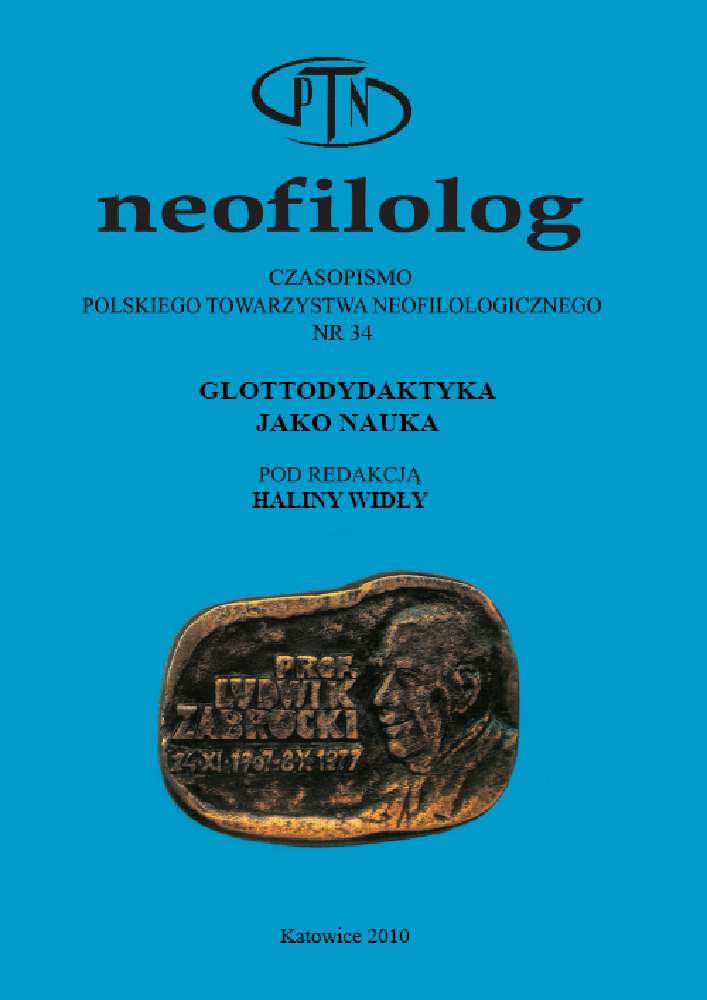Abstrakt
The classic experiment is one of the most important research methods in glottodidactics. The classic experiment must fulfill two conditions, namely control and experimental groups must be formed and subjects must be assigned to these groups at random. If one of these conditions, namely randomization, is not met, the research method is called quasiexperimental. If none of the conditions is met the method is called pre-experimental. In fact, the pre-experiment is probably most often used in research on teaching and learning foreign languages because, just like the true experiment, it allows the researcher to draw conclusions about the cause and effect relationship between particular variables and, at the same time, it is more practical than the true experiment. The aim of this paper is to present the experimental procedure consisting of ten steps proposed by Clegg (1994).
Bibliografia
Augustyńska, U. 2003. Statystyczna analiza danych w badaniach pedagogicznych z wykorzystaniem programu Statistica. Częstochowa: Wydawnictwo Wyższej Szkoły Pedagogicznej w Częstochowie.
Brown, H. D. 1991. Understanding Research in Second Language Learning. A Teacher’s
Guide to Statistics and Research Design. Cambridge: Cambridge University Press.
Clegg, F. 1994. Po prostu statystyka. Kurs dla studentów nauk społecznych. Warszawa: WSiP.
Hatch, E. i H. Farhady. 1982. Research Design and Statistics for Applied Linguistics. Rowley, Mass.: Newbury House.
Hatch, E. i A. Lazarton. 1991. The Research Manual. Design and Statistics for Applied Linguistics. Rowley, Mass.: Newbury House.
Larsen-Freeman, D. and M. Long. 1991. An Introduction to Second Language Acquisition Research. New York: Longman.
Licencja
Prawa autorskie (c) 2010 Katarzyna Rokoszewska

Utwór dostępny jest na licencji Creative Commons Uznanie autorstwa – Bez utworów zależnych 4.0 Międzynarodowe.
Przedstawiany utwór (artykuł) upubliczniany jest na podstawie umowy z autorem i na licencji Creative Commons Attribution-NoDerivatives 4.0 International (CC BY-ND 4.0).
Użytkownicy mają obowiązek podania wraz z rozpowszechnionym utworem, informacji o autorstwie, tytule, źródle (odnośniki do oryginalnego utworu, DOI) oraz samej licencji;
- bez tworzenia utworów zależnych,
- utwór musi być zachowany w oryginalnej postaci.
Uniwersytet im. Adama Mickiewicza w Poznaniu zachowuje prawo do czasopisma jako całości (układ, forma graficzna, tytuł, projekt okładki, logo itp.).
